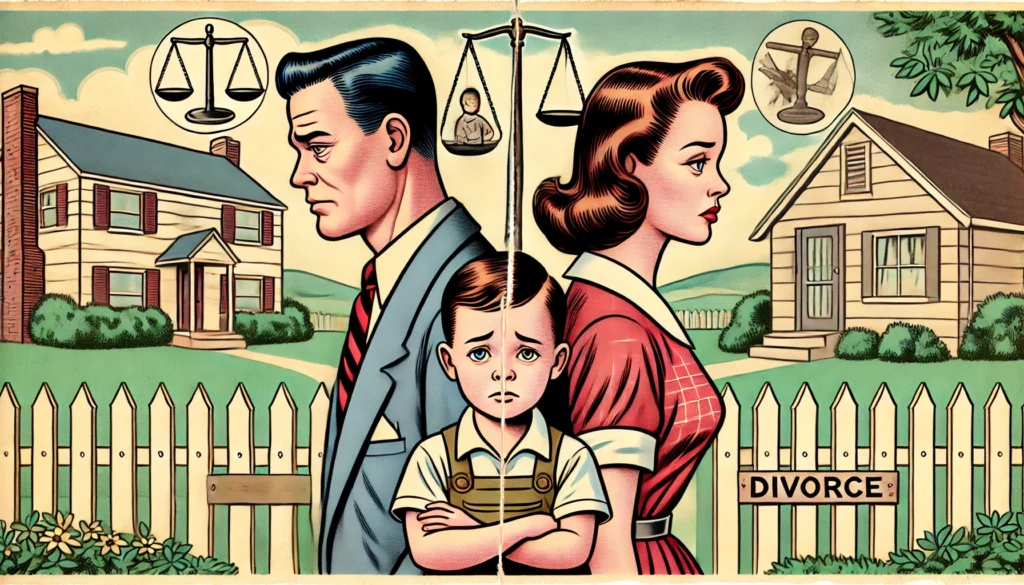The Impact of Divorce on Children and What You Can Do About It

To say that divorce can be tough is an understatement. It’s like pulling off a bandaid, except the adhesive on that band aid is made from gorilla glue, legal documents and soured emotions. Many people around me have gone through divorce and I have seen the effects that it has had on them and those around them. My parents divorced when I was young, many of my friends’ parents are divorced and my brother recently underwent a divorce. Needless to say, it’s been all around me and I’ve learned a lot from how different people have handled it – both good and bad.
Divorce can be a significant event in a child’s life, potentially causing emotional, behavioral, and psychological effects. While each child’s reaction may vary based on age, temperament, and circumstances surrounding the divorce, understanding these impacts and addressing them can help mitigate long-term consequences.
Emotional Impact
I’ve seen contrasting situations that some of the students I work with are going through where parents are talking horribly about each other to the kid creating this internal tear within the student. I remember learning about quartering in high school: in old England they would tie ropes bound to horses around a person’s limb and then have horses running in opposite directions ripping the person apart. The nastiest of divorces where kids are seeing their parents express deep hate for one another can be like emotional quartering for kids. If you would like more information on how high-conflict personalities may even undergo litigation abuse in this whole process check out this article.
Children may experience a range of emotions following a divorce, including sadness, confusion, fear, and anger. Younger children often struggle to understand why their parents are separating, leading to feelings of abandonment or self-blame. Adolescents, on the other hand, might display anger or become withdrawn, as they grapple with shifting family dynamics.
A common fear children express is uncertainty about the future: Will they have to move? Who will take care of them? Will they lose relationships with extended family members or friends? Reassuring them about their living arrangements and ongoing support is critical during this time.
Behavioral Changes
Divorce may lead to behavioral issues, particularly if children feel their emotional needs aren’t being met. They might act out in school, become more aggressive, or withdraw from activities they once enjoyed. These behaviors often reflect an internal struggle to cope with the new family situation.
Younger children may regress by developing new fears, bedwetting, or clinging to one parent. Older children and teenagers might express their frustration through defiance or risk-taking behaviors. It’s important to address these changes early on to prevent them from becoming more ingrained patterns.
Academic Performance
Divorce can also affect a child’s academic performance. The emotional toll of a shifting family environment may lead to difficulty concentrating in school. The disruption of routine, such as moving between homes, may also contribute to missed assignments or declining grades. Offering extra support and maintaining a consistent routine can help a child regain focus and stability.
Long-Term Psychological Effects
If not handled carefully, divorce can have lasting psychological effects on children. Studies suggest that children of divorced parents may struggle with relationships and trust issues later in life. They might also experience feelings of insecurity or fear of commitment. Open communication, positive co-parenting, and therapy when needed can help children process their emotions and foster healthier future relationships.
Prioritize Communication
Open, age-appropriate communication is key. Allow your child to express their feelings and listen to them without judgment. Validate their emotions and reassure them that both parents still love and support them.
Maintain Stability
Consistency in routine provides a sense of security during this turbulent time. Keeping regular schedules for school, extracurricular activities, and family time can help children feel more grounded. Avoid sudden changes or disruptions to their environment whenever possible.
Encourage Healthy Relationships
It’s crucial for children to maintain positive relationships with both parents, barring extreme circumstances. Collaborative co-parenting, where both parents remain involved and respectful, helps children adjust more smoothly to the new family dynamic.
Consider Counseling
If your child is having difficulty coping, therapy can provide a safe space to explore their emotions. Family counseling might also be beneficial to improve communication and resolve conflicts.
In conclusion, while divorce can be challenging for children, with understanding, open communication, and support, the negative effects can be minimized. Helping them adjust to their new reality can lead to emotional resilience and long-term well-being.

If you’re family is navigating a divorce or needs assistance resolving family conflict you can receive help from Elyse Salley at Serenity Family Solutions. They are experts in Florida in mediation, guardian ad litem, parent coordination, care coordination, and collaborative family practice.